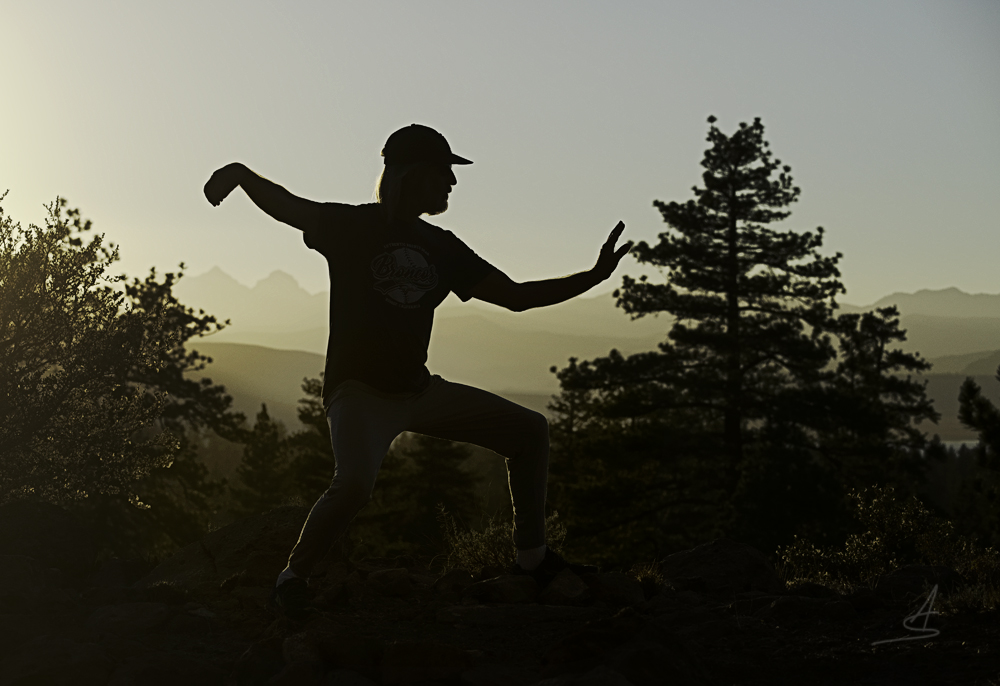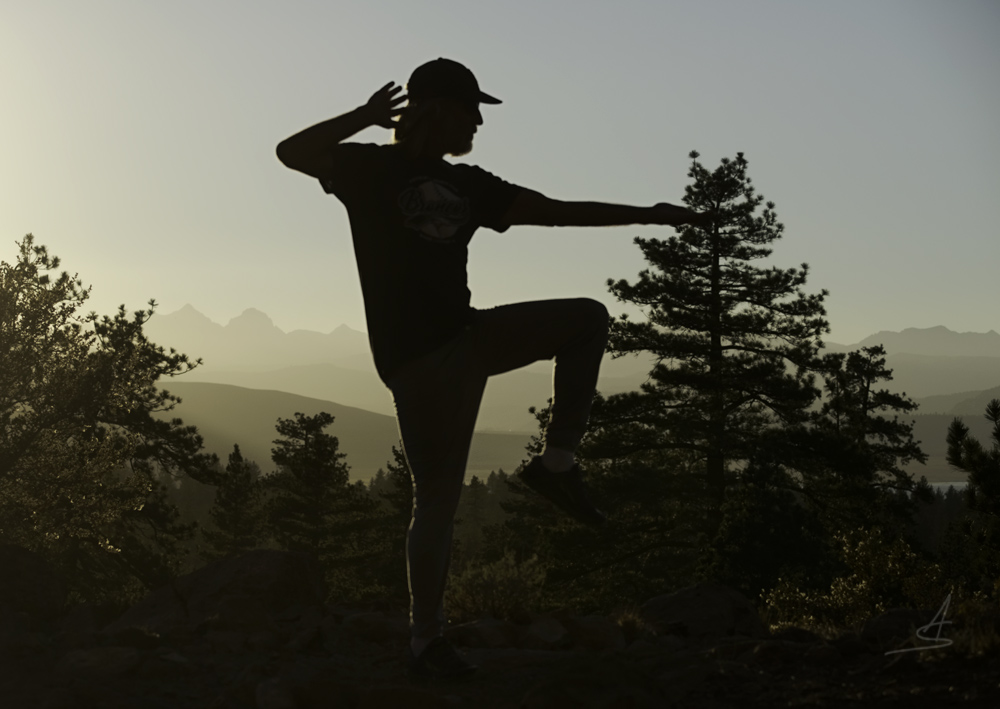
Recently the story tearing through America erupted in our little town: white cops meet a person of color, mutual suspicion escalates into a fight, and the person ends up badly injured or dead.
In this case, just a few blocks from where I write this, two deputies on a 2am domestic violence call saw a Paiute man walking with a dog through an empty gas station. They called out to him. He responded with a nervous “Hi” but became alarmed and trotted toward them in chaotic distress, both speaking threats and holding his hands in the air. Immediately the cops warned him and drew weapons. He kept approaching with his hands up, they warned and threatened again, he kept coming and at about 10 feet they tasered him. Down he went, the cops jumped over and demanded he get onto his stomach but he writhed and thrashed and did not comply. The dog freaked out and parried at the cops, they demanded that the writhing man reign in the dog, then one of the deputies shot the dog. When the man gathered himself he started walking away and the deputies followed to arrest him. He kept resisting, they brought in reinforcements including one of their dogs, and beat him into the ICU with his life in jeopardy. Videos casted the confrontation across the region and into the national news, and we learned that the man was not a suspect in the original call or in any other charge. At this writing Inyo County is conducting investigations into possible charges against both the man and the deputies.
I won’t weigh in here to either side, but I will take a step back and offer suggestions from when I walked into a similar situation.
It was a snowy winter’s night at the resort “village” in Mammoth Lakes when I walked to an art gallery, wearing a blue hooded jacket. The area was empty but by happenstance my route turned to follow about 20 feet behind a guy who’d just walked out of a drinking establishment. After a bit he turned around and said to me, “Hey, you’re following me!”
“No,” I said, “I’m just going this way.” He turned around and resumed walking on.
A few steps later he turned around again and came over to stand right in front of me. He said, “Hey, you’re LAPD aren’t you! You’re following me!” Then he gave a light push against my shoulder.
I weighed the fight; he was bigger than me, maybe 6’4” and fairly well proportioned. In my favor I had my T’ai-chi training and the fact that he was agitated, inebriated, and to some degree delusional. But in T’ai-chi or otherwise I am not a practiced fighter, and I could see he was more capable and angry than drunk. I felt anxiety swell into my shoulders and throat, and I heard thoughts bolstering my confidence that with my best quicks my odds were probably better than even. Probably. As per my training I settled into a solid alignment onto my feet and got springy. Then my mind saw the pictures of how the fight would play out—slugging, deflecting, retaliation, rage; mayhem, injury, cops, hospital, jail. Win or lose, everyone loses. Then came these words: this is not my fight. I anchored into that, and though my heart thumped against my sternum I looked right at him, neither afraid nor threatening, and watch him watch me as I stepped around him and walked on. I strode on as normally as I could, knowing I was very vulnerable and had to be ready for an attack from behind.
He followed, to my left. The hair on my neck tingled, my gut readied, I walked on straight. He strode in front of me, put his hand out and said, “Hey I’m really sorry, what’s your name?”
“Andy,” I said. We shook hands.
“I’m David. I’m a Tecumseh Indian,” he said, thumping his chest with Tecumseh.
“Ok,” I said. “I’m a photographer, I’m heading to a gallery around the corner.”
“Ok, I’m sorry man.”
“Ok, all’s well that ends well.”
He walked on ahead, but from 30 feet away he turned around once more and yelled back, “But all you white people are motherfuckers!”
When I recall this incident I’m still half surprised for how well T’ai-chi—the “inner” martial art—worked, just as my original teacher taught. At the crux moment I gathered David’s threat into aligning and readying my body, and that “inner move” freed my mind to see the deeper read. When I stepped around him I vacated his provocation, giving it nowhere to land and putting the ball back into his court. He was then free to make the next move, and he made the right one. Practiced T’ai-chi moves are crazy effective in a fight, but this time I was fortunate that all I needed was the frictionless essence: clarity and will to deflect a fight without a fist. Without the physical training I doubt I could have done it, ie. stayed strong and not fought back.

It’s tempting to hold up this incident as a mini-triumph of righteous non-violence, but all that really happened was that a bad situation didn’t amplify into a shit show. The bad situation continues: we Americans share our neighborhoods and nation with people we are afraid of. Racial fear inflames our security and is a major reason why we ready our cops with weapons and training as if for warfare. I’m not in a position to argue what cops need and not, but it’s an inherent truth that depending on weapons for strategic, preemptive safety tempts us to skip over our person-to-person skills and go right to those triggers, escalating conflicts before there’s even an encounter. I’m a white guy enjoying substantial privileges and I’m thankful for living in a generally law-enforcement respecting town, but I’m also wary of overzealous cops profiling me as a very unwelcome longhair, most notably when multiple patrol cars mysteriously chased down, surrounded and searched me and my buddies at gunpoint, eventually gave up disappointed at finding nothing, and reluctantly disclosed that they’d followed a deliberately fabricated charge of armed robbery in the act of buying an avocado in rural Oregon with California plates.
All these incidents amplify this point: in moments of confrontation we face a core conflict within ourselves—fight or flee, how hard, where, and which way? The reality is that when fear takes hold it wants us to do both of everything and whatever else it takes to survive and get to security. What I’ve learned from both climbing and T’ai-chi is that with body practice we can cultivate a heightened relaxation that stabilizes and uses that inner conflict as effective energy. Deliberate body movements teach us to know the feel of condensing anxiety into relaxed and solid readiness, and that process can carry us through to the advanced skills of martial art masters, who “use four ounces to deflect a thousand pounds.” These incidents all show how leverage can go either way; an ounce of fear can escalate into a disaster, or a grounded and focused will can steer conflict into resolution. Both cops and citizens have powers to protect ourselves by diffusing not escalating, and we should all know there is substantial power in managing our emotions through our spine.
The real work comes on “normal” days, to notice how we walk around among one another with hidden friction, and diffuse that by getting to know the different sorts of people around us as worthy of respect.

